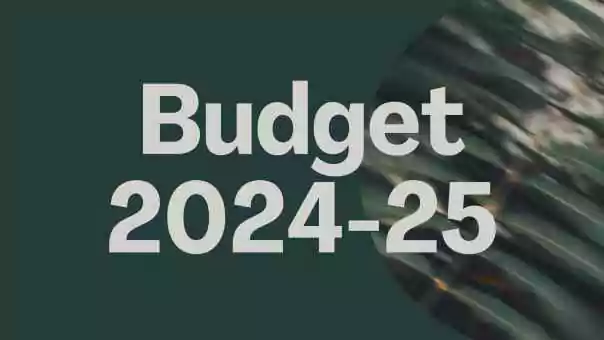Karachi, June 15, 2024 – The budget for the fiscal year 2024-25 has drawn criticism from experts for its emphasis on generating higher tax revenue rather than broadening the tax base.
According to tax experts at KPMG Taseer Hadi & Co., the government’s strategy focuses on increasing tax rates on existing taxpayers.
“Focus seems to be on generating higher tax revenues by increasing tax rates on existing taxpayers,” said the experts at KPMG. They noted that the coalition government, presenting its first budget for FY 24-25, appears to be primarily concerned with ongoing negotiations for the IMF program. The majority of the budget proposals are designed not to disrupt these crucial discussions with the International Monetary Fund (IMF), often considered the lender of last resort.
The government has set a GDP growth rate target of 3.6% for the next financial year. While this is an improvement over the expected 2.4% growth rate for the current year, it remains insufficient to lift large segments of the population out of poverty. Despite this, the overall growth direction is positive, and with early signs of economic recovery, the experts believe the targeted GDP growth rate is achievable, barring any significant internal or external shocks.
The budget includes several taxation measures likely to impact inflation. These include an increase in the Petroleum Development Levy and expected upward adjustments in energy prices. However, with the State Bank of Pakistan’s (SBP) tight monetary policy and the government’s contractionary fiscal policy, the targeted inflation rate of 12% is considered broadly achievable.
One of the most ambitious aspects of the budget is the tax collection target set for the Federal Board of Revenue (FBR) at Rs. 12,970 billion, representing a 38% increase from last year’s goal. While the government has achieved a 30% growth in tax revenues during the outgoing financial year, this success was significantly driven by high inflation rates. With the inflation rate expected to settle at 12% and a GDP growth rate of 3.6%, achieving a 38% increase in tax collection is a challenging target. Nonetheless, improved tax enforcement and new taxation measures might help Pakistan come close to meeting these ambitious fiscal goals.
Despite the government’s strong statements about broadening the tax base, the measures announced in the budget fall short in this regard. There are no significant measures to tap into the undocumented economy. The focus remains on generating higher tax revenues by increasing tax rates on existing taxpayers. Some new measures aim to encourage higher income tax return filings by making business transactions prohibitively expensive for non-filers. However, empirical evidence does not support a significant increase in the tax base due to these steps.
The budget does include limited measures to encourage growth in sectors such as agriculture. However, there are no significant incentives to expand local manufacturing for import substitution and export growth.
Experts maintain that while the economic targets set in the budget are broadly achievable and the proposed taxation measures focus on enhancing revenues from the existing tax base, this approach favors stability over growth. This strategy may provide the government with sufficient fiscal space to successfully negotiate new long-term lending with the IMF. However, unless key reforms and structural changes are successfully implemented, the opportunity for the economy to transition to a high-growth trajectory may be lost.
